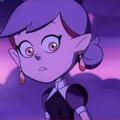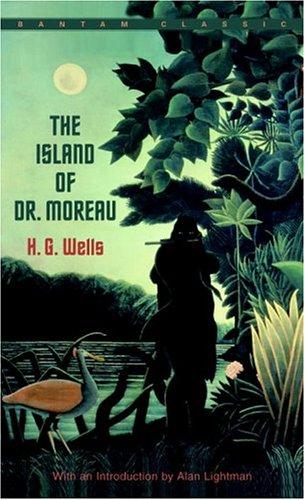See work: openlibrary.org/works/OL15308975W
Review of 'The Island of Dr. Moreau (Bantam Classics)' on 'Goodreads'
3 stars
What makes a book a classic? Does it have to be literary? Does it require a handle on aesthetic? Does it have to avoid being "mere escapism"?
I take a somewhat cynical view of what qualifies a work of literature as a "classic". Usually, it must pass the test of time and it must be influential or inspire generations of writers. In a sense, a book becomes a classic by winning a cosmic popularity contest, insuring that it is held up as an example to be followed.
H.G. Wells tends not to be literary. He has little to no handle on aesthetic. His work does tend to be escapist literature. Then again, these qualities define most classics: you usually can not pass the test of time without being popular. H.G. Wells has much more in common with Michael Crichton than Thomas Pynchon. Which means that, though Wells certainly may have a purpose or message in his writing, his primary goal is to entertain. If he tricks you into learning something, all the better. This serves Wells, for a lot of his "scientific ideas" are out-dated or simply fantastic. However, because his principle aims are to provide an exciting story and perhaps reflect on human nature reacting to his plots, the accuracy of his science is unimportant. His fictions will continue to have vivid life even if the scientific ideas he propounds have fallen into the obscurity of irrelevancy.
Like Jurassic Park, very few people care that the cloning science is preposterous. The science is a means to get the story started, and not the story itself.
The Island of Dr. Moreau deals with the manipulation of biological life. Can we change the nature of a living organism? Are behaviours determined by natural characterization or culture? How close are we, civilized humans, to the savage beasts? Is seeking knowledge for the sake of knowledge good in of itself, or does there need to be an aim for a good application? The Island of Dr. Moreau provides an environment for these questions but no easy answers.
Perhaps the reader could conclude that "playing God is bad", but I think Wells is a bit more sophisticated then that. The tortuous techniques used by Dr. Moreau, though undesirable, are never stated to be absolutely evil. Prendrick, our narrator, seems much more concerned that vivisection is not applied to humans (particularly himself) than the amount of pain it inflicts on the animal subject. It is ultimately left up to the reader to make the moral judgement if there is one to be made.
The Island of Dr. Moreau is first and foremost an adventure story in which Prendrick finds himself on an island, discovers the experiments of Dr. Moreau, and eventually escapes. Because its main focus is to be this sort of story, it has avoided the pitfalls of needing to remain "topically relevant" and "scientifically accurate", becoming a classic because it was able to engage generations of readers on the merits of its story alone. Some say this story anticipates genetic engineering, I say quit reading too much into it and enjoy it for what it is.

